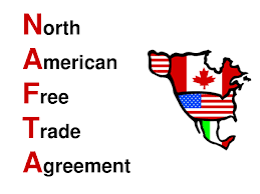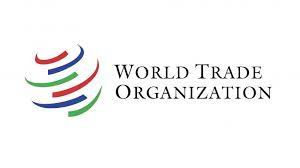Liberal
Liberals tend to view globalization as a positive. The common beliefs are that it allows for economic interdependence, free trade, peace, cooperation and the potential growth of global prosperity. They put a heavy emphasis on the importance of the economy. They believe that because states are able to coordinate and trade to boost their economies, they will then avoid conflict. Their beliefs are proven by worldwide institutions that help regulate commerce among states.
Liberal scholars and policymakers support free trade agreements. These include institutions such as the North American Free Trade Agreement (NAFTA), the European Union’s single market, and the Trans-Pacific Partnership (TPP). They argue that these agreements promote economic interdependence and prosperity by reducing trade barriers and tariffs. To help regulate and bring order to international trade, the World Trade Organization (WTO) resolves trade-related conflicts among the states that have joined. Liberals believe these institutions to not only be vital to promoting peace and cooperation among states, but also assisting developing countries.

They help facilitate trade by giving what some would call “special treatment” to young/developing countries to allow for effective economic growth within that state. This has allowed for economic growth in many different states that had been previously behind and contained an inefficient economy. For example, in Asia, Singapore, South Korea and Taiwan all saw economic growth after joining the World Trade Organization. This allowed for economic stability within their respective states as well as an increase in well-being. Overall, the World Trade Organization is responsible for 90% of the world’s trade. They are also responsible for reduced costs of production, reduced prices of finished products and goods and more choices. This ultimately allows for a lower cost of living in the states involved in the World Trade Organization.

Critical
Critical perspectives on globalization take an examination of the effects if globalization and its downsides. They put emphasis on the negative consequences such as power imbalances, exploitation of other states and social inequality that comes as a result of the integration of other more powerful states’ economies and societies. These include issues such as exploiting working wages in other countries, environmental degradation, dependency on foreign aid, cultural degradation and many other factors that are not examined in the liberal view. All these factors combined allow for many to question the validity of how important these global institutions are run. Are they really benefitting these developing countries and making them greater states, or are they merely abusing there natural resources to try and keep up with other states.
The most well-known factor is the labor exploitation in other countries. Big companies, such as Nike, have received massive backlash from the public and even its athletes over the abuse of sweatshops and child labor in countries across the globe. While the argument is that for some families to survive, they need the boost in income to survive and the only way to do that is through the child-labor laws. While in some countries, this is ethical, to the majority of the world this is exploitative of globalization. Nike gets their product at an extremely low cost and sells it for a premium. While Nike is obviously not the only culprit, they have been one of the biggest winners of globalization.

Along with worker exploitation, environmental degradation is another well-known negative that has come as a result of globalization. It has led to increased pollution, deforestation and exploitation of natural resources in many countries. For example, because of the rapid growth in the palm oil industry in Malaysia, many forests and habitats have been torn down to allow for better short-term results in the economy. To many governments, the deforestation doesn’t seem live a big problem. However, in time the reduction of CO2 will destroy any agricultural production within that economy. States such as Brazil have heavily benefitted from deforestation in their economy. This, in turn, doesn’t allow the country to practice what’s known as double-cropping. This allows Brazilian farmers to plant 2 different crops within one piece of land each year.

Conviction
While the liberal perspective makes great points about how interdependence, institutions and trade all contribute towards peace among states worldwide, the critical perspective has much more depth and I find I agree with it much more. The liberal perspective focuses on the surface of all transactions and then looks at the positives. The critical perspective does a much better as it digs beneath the surface to find the real effects on a states’ economies, cultures and land.
Leave a Reply